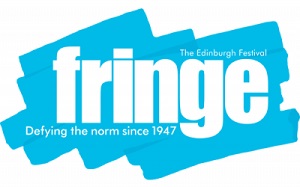
Edinburgh Festival Fringe 2016 (3) – Music Roundup – Week 2. 22.8.2016 (SRT)
When most music lovers think of the Edinburgh Festival they think of big touring opera productions, visiting orchestras at the Usher Hall or superstar recitalists at the Queen’s Hall; but if you look beyond the confines of the EIF and into the Fringe, then you’ll often find a lot of very high quality music out there too.
Every year at the Fringe, Edinburgh’s branch of the Royal Overseas’ League, at the prestigious address of 100 Princes Street, hosts a series of intimate concerts featuring artists who are on the way up. For those in the know, these are highly desirable tickets, and it helps that they serve refreshments afterwards! I’ve never been disappointed by a concert I’ve attended here, and they’re often pretty experimental in their repertoire.
So it proved with Ferio Saxophone Quartet’s morning concert in their Bach for Breakfast series. It turns out that Bach suits the saxophone rather well! The Italian Concerto bounded along with tremendous energy, with a soaring soprano line for the central aria, and their chosen prelude from the Well Tempered Clavier was dazzling, as was the G minor prelude and fugue. Perhaps the instruments suited their choice of Renaissance vocal movements even better. Byrd’s Ave Verum soared richly, and their arrangement of Pergolesi’s Stabat Mater integrated the famous walking bass into the rest of the texture very successfully.
More by luck than design, I saw three concerts from the Solem Quartet. Som Howie joined them for a Mozart Clarinet Quintet that would put to shame musicians with far more experience than them, full of silk and sparkle without ignoring the work’s much-spoken-of autumnal nature. Their performance reminded me, however, that even young musicians are under enormous diary pressures: the clarinettist had med the quartet for the first time less than 24 hours before the performance, and they hadn’t managed to fine tune issues of blend, so that the clarinet was rather too prominent in the sound. Before he joined in, though, they managed a cracking performance of Schubert’s Quartettsatz, febrile and agitated but still tapping into the work’s lyricism. Their Schubert Quintet the following day (for which they were joined by Edward King on cello) was a bit more ragged, particularly in the slightly tense violins, and they also approached it with a great deal of earnestness – only in the Scherzo did they seem to properly relax – but that’s probably an unavoidable consequence of playing it so early in their career together. Their performance of the A minor “Rosamunde” quartet the following day was much better: a disciplined account of the first movement yielding to a cultured slow movement and a searching Menuet and Finale. They were also joined by Charlotte Ashton on flute for Mozart’s first Flute Quartet, a model of classical elegance and poise with a lovely cantabile line for the central Adagio. Invidious as it seems to single out an individual in a quartet, I particularly liked the rich sound of Alistair Vennart’s viola, ripe and mellow while sitting squarely and comfortably in the middle of the sound.
Later that week, I found myself in the small-but-perfectly-formed surrounding of St Vincent’s Chapel, Stockbridge. Stockbridge likes to call itself Edinburgh’s New Town village, and its preponderance of artisan coffee shops and upcycling venues can make it feel like rather hard work. Thankfully, St Vincent’s is a refuge from all that. Set off the main drag, this small, square Victorian Episcopalian church has its own mini programme of music during the Fringe. I joined them for a self-styled Schubertiade, featuring as its centrepiece a performance of the F minor Fantasia for piano duet that sounded pleasingly architectural in the close acoustic. Music Director Les Shankland introduced the programme by explaining that Schubertiades were amateur affairs featuring the composer’s friends. If the three part-songs (sung by a male quartet) sounded a little rough-round-the-edges then that was all in the spirit of the event. The concert finished with a lovely Shepherd on the Rock, however, featuring the bright soprano of Georgie Malcolm and, best of all, the agile clarinet of Calum Robertson. Between them they caught both the mood and the acoustic of the building perfectly.
Simon Thompson
The Edinburgh Festival Fringe continues until Monday 29th August at a range of venues across the city. For full details click here.